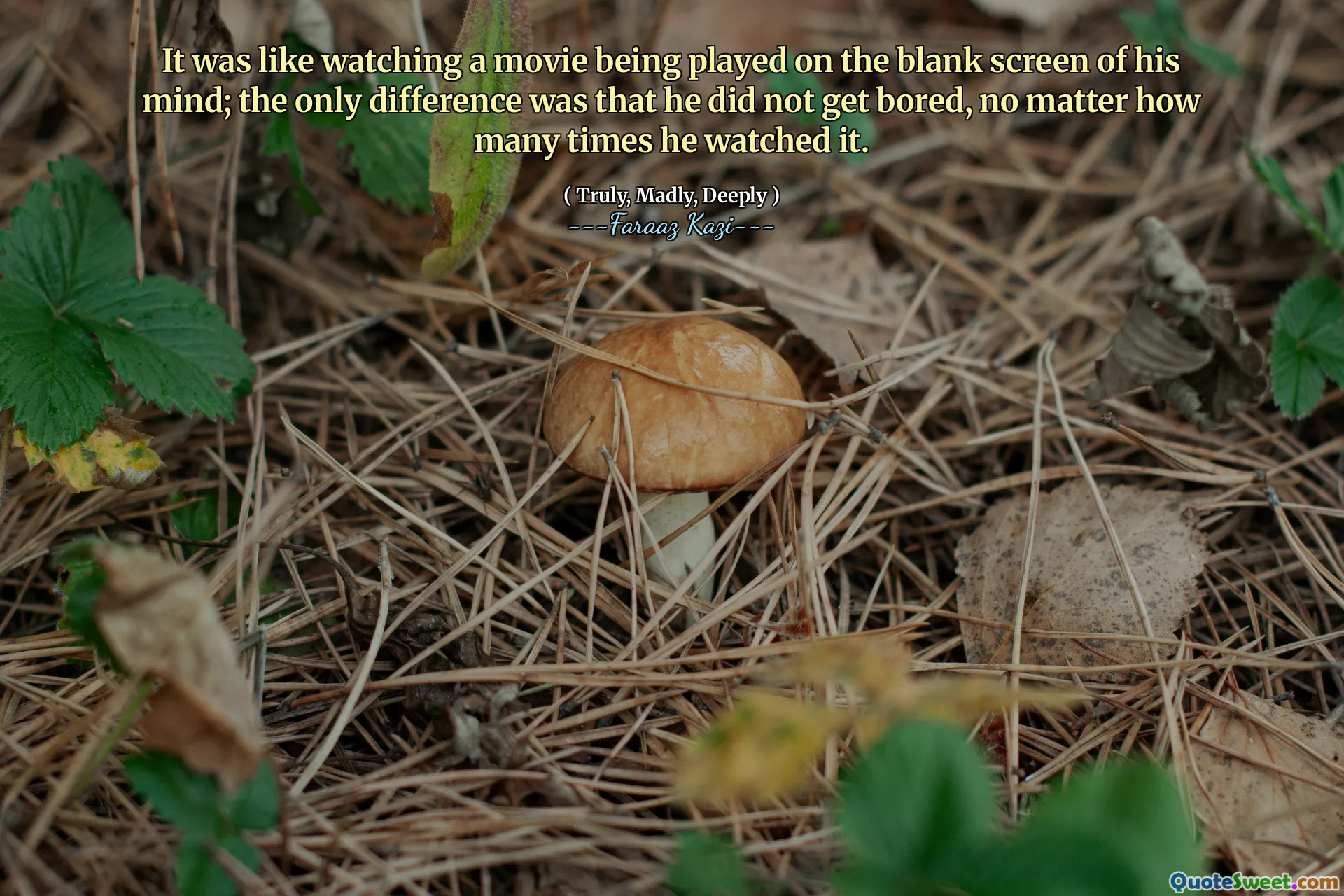
It was like watching a movie being played on the blank screen of his mind; the only difference was that he did not get bored, no matter how many times he watched it.
This quote eloquently captures the mesmerizing and endless nature of human contemplation and memory. The analogy of the mind as a blank screen upon which a movie is played evokes a sense of both emptiness and creativity. The 'blank screen' suggests a pure, untainted canvas that allows imagination and memories to take vivid form, unbound by external distractions. What makes this especially insightful is the notion that the individual does not grow bored, regardless of how many times the mental movie is replayed. This hints at the powerful emotional or intellectual engagement the person has with these thoughts or memories — a kind of internal fascination that remains fresh and compelling through repetition.
It also touches on the subjectivity of experience. Unlike watching a physical movie repeatedly, which often leads to boredom or fatigue, the mental cinema in one's mind can offer nuance and deeper understanding with each revisit. It reflects the way the mind processes emotions, stories, or ideas - revisiting them allows the person to uncover new meanings or savor them differently each time. This could be tied to nostalgia, love, hope, or even obsession, all of which have the capacity to hold attention indefinitely. The quote subtly honors the inner life and its richness, celebrating the human mind's ability to find ceaseless awe in its own creations. Such reflections remind us of the power and beauty that our thoughts hold when we engage deeply with them.







